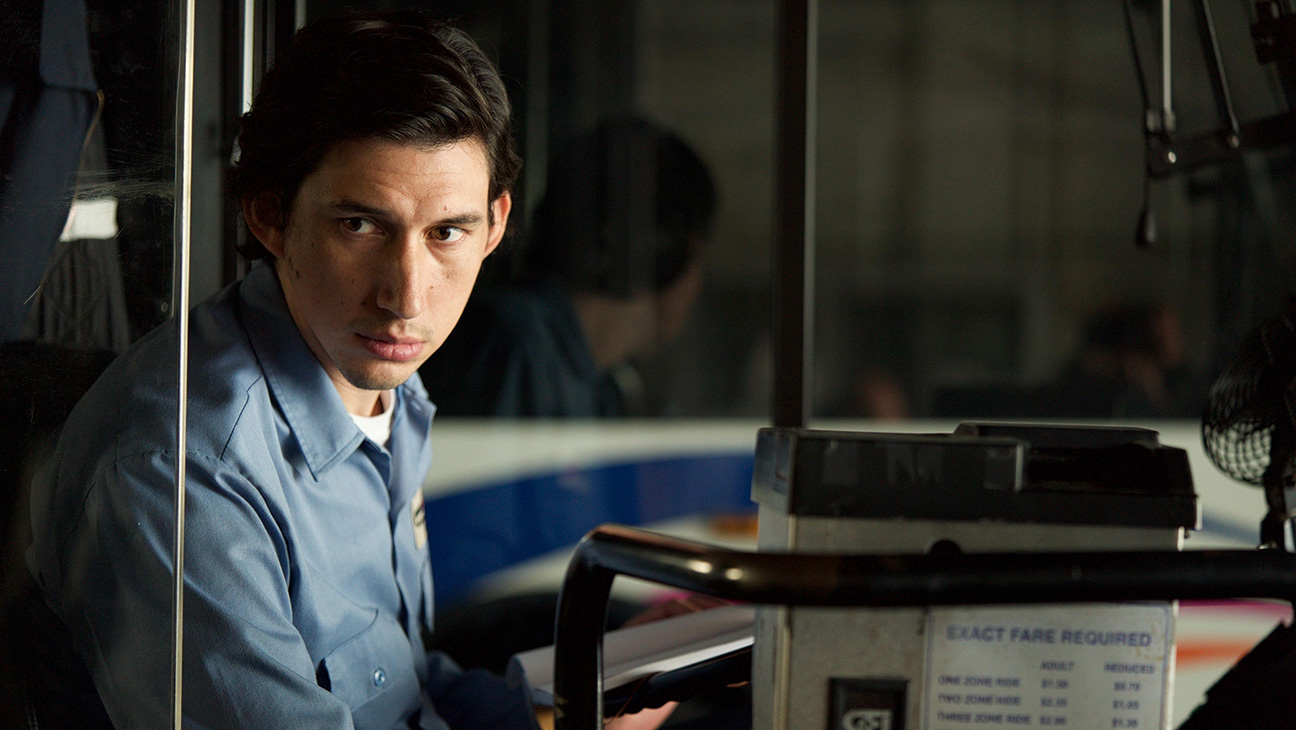
After seeing Paterson, it would not surprise us to know that its director, Jim Jarmusch, is a great admirer of poets. Jarmusch has admitted to being a big fan of New York poets Frank O’Hara and Josh Ashbery. Even in his own time, Jarmusch has been a writer of poetry.
His films reflect this quality, particularly in their visual style. Such films as Down by Law (1986) and Dead Man (1995) are perfect manifestations of a certain poetic, rhythmic style. Jarmusch is definitely attuned to how to constitute poetry in his films, and Paterson is an eminent example of that.
1. Focused on a bus driver

Paterson is a film centred around an ordinary guy, who also happens to be named Paterson. He is a former Marine, as conveyed to us by photos of him in Marine attire. His current career is bus driving, which is befitting of such an ordinary guy.
Rather than imbuing this fact with lament, Jarmusch speaks confidently of the importance of such careers: that, without bus drivers, a piece of our community infrastructure would be missing. Paterson himself embodies this idea, as he works in a quiet, diligent to provide transport to others. It is as though Jarmusch’s film is an acknowledgement of the under-appreciated bus drivers, and more broadly blue collar workers, in our society.
2. The film’s structure

Paterson takes place over a week. It begins on a Monday, and concludes on a Sunday. This narrative structure works to document a typical week in Paterson’s life. We get the feeling that this is the kind of week Paterson often has.
For some, this might feel banal. But, if one is to interpret Jarmusch’s intentions properly, the narrative structure has the effect of bringing out the comfort and joys of routine. Paterson is a guy with a routine: he wakes up, eats breakfast, writes some poetry, drives a bus, heads home, takes his dog for a walk, has a beer at his favourite bar, and goes to bed.
Broadly, it seems that Paterson’s days are identical. But, in doing the same things, Paterson has experiences variation: at the bar, one day, he may talk to the owner and bar-tender about his marital problems, and another, be confronted by a man expressing his unrequited love for his ex-girlfriend. The narrative structure allows us to see the shifting nature of the everyday, and also for us to extract life and meaning through routines.
3. Paterson’s own poetry

A significantly contributing factor to Paterson being such a poetic film is the fact that Paterson himself is a keen poet. In his basement lies an array of poetry anthologies, including the works of Whitman. This is where Paterson stores his notebook, which is full of poems that he has written about his life, companions, and environment.
Paterson’s poetry is quite minimalist, and the content of it focuses on quite personal subjects. The syntax and semantics that Paterson uses is likewise simple. Paterson’s style of poetry actually works to enhance the meaning of the works, because of its intimate connection to the nature of his existence. It is essentially truthful poetry that extrapolates meaning through his life.
Moreover, Paterson’s poetry seems to mean a lot to him. He refuses to let anyone read it, even not his partner Laura. He always finds time to write, and it seems as though every waking minute for Paterson is an opportunity for him to find inspiration for his poetry.
4. It embraces the little moments of beauty in everyday life

As has been alluded to already, Paterson is a film primarily concerned with the beauty contained in the everyday. On the surface, it is apparent that such beauty is absent. In this respect, Paterson is an exploration of how to find and ruminate on these special instances.
Paterson does not comprehensively prescribe what constitutes everyday beauty, but rather shows what Paterson himself finds remarkable. For example, the sun reflecting off the bus window, or the first moment in which Paterson looks at a sleeping Laura is memorable for him.
5. Paterson is about small-time ambitions

Many films focus solely on grand-scale events, or things unimaginably larger than human existence. Many sci-fi films deal in large hypotheticals; while many biopics depict the unrestrained ambitions of famous, successful people.
Paterson refreshingly bucks this trend. As Jarmusch has done his whole career, Paterson is a subversion of the idea of life is only worth living if we strive to be the best, and the most successful in material terms. Paterson himself is quite satisfied with his position as a bus driver, and with his partner and his everyday routine. What he strives for is a continuation of the things that make him happy: at the pinnacle of which seems to be his penchant for poetry.
Jarmusch positions us to accept Paterson for the creature that he is, and not to question him for his apathy towards fame and traditional ideas of success.
If anything, the implications of Paterson’s past as a Marine imply that Paterson’s ambitious and vision for the future is optimal for his wellbeing. That is, his absorption in the pleasures of the everyday help to eliminate the horrors of war and conflict from his existence.
6. Life is given meaning through personal relationships

Paterson is a quiet sort. Throughout the film, he tends to keep to himself, and it isn’t obvious that he is interested in maintaining strong relationships. Nonetheless, Jarmusch gives us insightful glimpses into what makes Paterson ‘tick’.
At home with Laura, Paterson is quite restrained, and Laura dominates conversation. Once one considers the dynamic of the relationship, it manifests itself that Paterson is enlivened and appreciative of Laura’s attention. He does not say it in words, but his disposition indicates to us that he is as connected with Laura as she is with him.
Similarly, Paterson takes great pleasure in one-off, fortuitous encounters. Across the film, there are many instances in which Paterson takes the opportunity to have meaningful conversations with strangers. Perhaps the most potent of which is when he runs into a young girl when he is walking home from work. Travelling along the same route he always does, Paterson sees a young girl, notebook in hand, waiting for her mother to pick her up.
At first, Paterson enquires about the location of her guardians, and then he decides to wait for her mother to come and collect her. In the meantime, Paterson and the young girl take the chance to discuss each other’s poetry, and Paterson lauds the young girl’s work. Underlying the conversation is a strong sense of wonder at the power of poetry, and the spirit of human kinship.